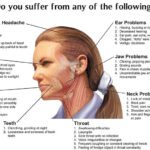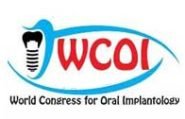Do you ever wonder where your neck ache is originating from? Have you seen various specialists and they cannot give you a direct answer? It might be that the actual reason behind the ache is a TMJ (temporomandibular joint) issue, which is generally neglected. If your jaw gets dislocated, the encompassing muscles go into spasm. This incorporates your neck muscles as well. Side effects can include not simply neck ache, but rather stiffness, lack of sensation in the neck, lack of ability to turn the head right or left, sounds created from joints during neck movement, arthritis in the neck, and more.
In the event that your doctor can’t pinpoint the reason for your neck and shoulder pain, maybe the solution is in the hands of your dental specialist. According to the reports, the majority of people tolerate migraines, headaches, jaw pain, shoulder, and neck pain because of jaw joint disorder, or a poor bite. As a result, general physicians might not have the appropriate solution, but a neuromuscular dental specialist most probably will.
A “bad bite” (malocclusion) may thus change the jaw-to-skull relationship making the jaw to be in a strained position. The muscles associated with biting, chewing, talking, breathing and head posture are the bones of the neck. In the event that the back, neck and shoulder muscles are compelled to make up for the sore, contracted and tight muscles of the jaw, it will cause the neck ache that you may have been suffering from. Neuromuscular dental specialists can ease the strain on the jaw and encompassing muscles by correcting the bite.
Jaw alignment can affect a range of the human body’s systems. In addition, stress is a vital aspect that causes TMJ. TMJ ache often gets intensified when you’re anxious and under strain. That strain can pass on to the neck, upper back, shoulders, and also cause serious headaches. TMJ medicines can help with anxiety. Dental practitioners can ease these side effects through TMJ treatment. That treatment could mean better alignment for your back, shoulders, and neck, as well.
Neck pain and jaw dislocation may originate because of the degeneration of ligaments, bone, and muscles, or through inherited deformities in the joint. Abnormities that lead to hyper mobility may also cause the patients to experience several jaw dislocations over a period of time, recurring damage to the ligaments and bones. If TMD is left untreated, it may also bring about jaw dislocation, neck pain, and degeneration of the jaw.
Extreme cramping in the muscles can get the TMJ out of position, and injured muscles can make the joint to move. Apart from the ligaments and bones that form the TMJ or temporomandibular joint, there is additionally a supply of blood from an important artery of the head, also known as a temporal artery. Nerves at this place are in charge of giving signals for the movement in temporomandibular joint. Back and neck pain can come about because of injury caused to nerves present in the face.
Dental specialists that well-versed with latest technologies and studies can help patients overcome TMJ disorders and the pain associated with it, also known as TMD.









